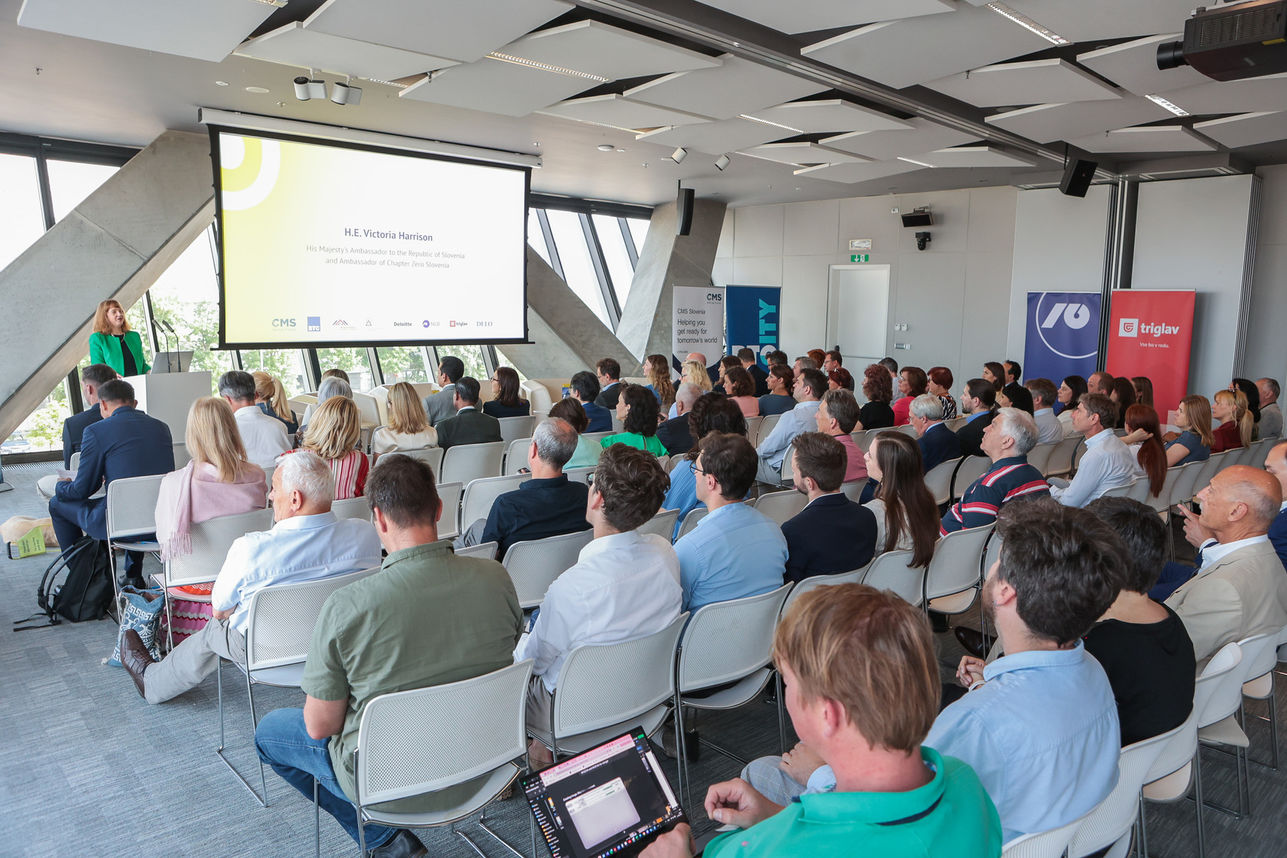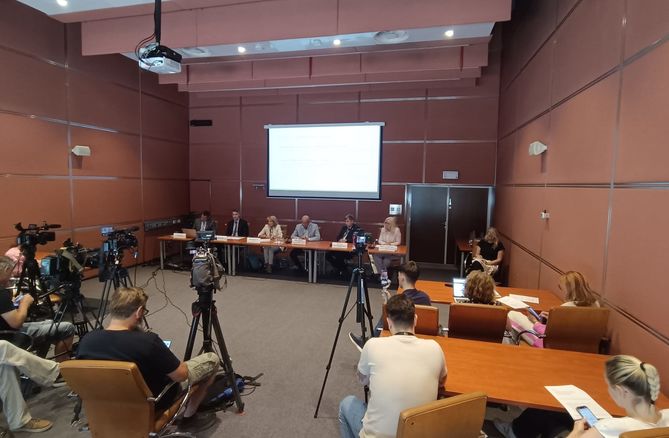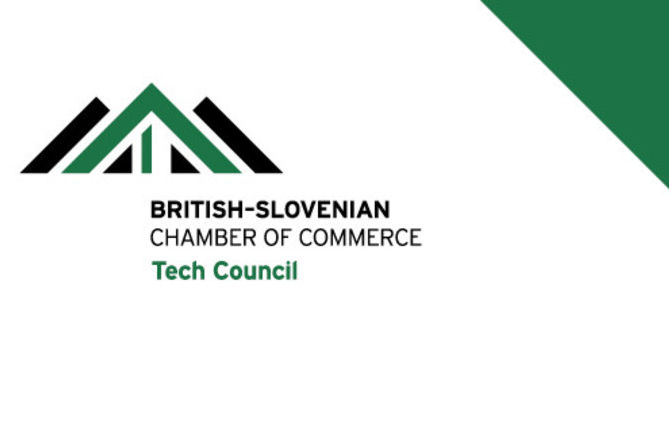Climate Action in an Era of Global Fragmentation and False Narratives

Ljubljana, 11 June 2025 - Although the climate science is becoming clearer and the warnings louder, global climate policy remains fragmented. This is creating uncertainties about future action and raising expectations ahead of the upcoming COP30 conference in Brazil. At the same time, disinformation and misleading narratives are further delaying progress on climate action and reinforcing public doubts. We are faced with an urgent need for responsible consumer behaviour, clearer and more trustworthy communication, and greater public awareness, while respecting freedom of expression. These were among the key messages of the latest Chapter Zero Slovenia event.
His Majesty’s Ambassador to the Republic of Slovenia Victoria Harrison opened the event in her capacity as Patron of Chapter Zero Slovenia, underlining the UK’s continued leadership in addressing the climate crisis, "The UK remains a committed leader on climate. Climate change is one of the defining challenges of our time, one that demands leadership not just from governments, but also from business. Empowering board members with the right knowledge, frameworks and confidence is crucial to turning climate ambition into action – which is integral to long-term business value and resilience. That’s why today’s event is so important."
Moderated by Tina Kobilšek, Slovenia’s Lead Negotiator for Climate Change, the first panel addressed how changing geopolitical dynamics and the link between the green transition, energy security, and economic interests are reshaping the international climate agenda.
Despite the many global challenges, Slovenia remains committed to multilateral and science-based climate action. "The Paris Agreement is a global solution to a global problem. Of course, we will miss one of the biggest players – the United States – which has stepped back from the Paris Agreement and COP," said Uroš Vajgl, State Secretary at the Ministry of the Environment, Climate and Energy. "But you can’t outvote climate change – it’s a fact. We won’t be able to fill the void left by the US, but we will keep working. Our long-term competitiveness depends on decarbonisation and reducing fossil fuel dependency."
India’s approach to climate action is based on innovation, behavioural change and international cooperation. "Our energy consumption will continue to grow, but we must do more with less – grow our economy with less energy," said His Excellency Amit Narang, Ambassador of India to Slovenia. "India is walking the talk. We are investing in clean technologies, shifting consumer behaviour, and engaging in global climate discourse. I’m fairly optimistic we’re on the right path."
Brazil, as host of COP30, is positioning itself as a key climate leader focused on delivering its commitments. "Belem is rooted in the heart of the Amazon region, and it will not only host the conference, but serve as a stage to reaffirm our commitment to sustainability," said Her Excellency Maria Izabel Vieira, Ambassador of Brazil to Slovenia. "Brazil understands what is at stake. COP30 must be a milestone for action – not just promises. We’re committed to strengthening the multilateral climate regime and mobilising sustainable finance for developing countries."
China’s role in the green transition continues to evolve, creating both challenges and opportunities for collaboration. "China is still the world’s largest emitter, but it’s also the biggest investor in renewables," said Žiga Vavpotič, President of the Slovenian-Chinese Business Council. "There’s a tremendous opportunity for greater EU–China cooperation. Green is no longer philanthropy – it’s strategy. Business leaders must see where the opportunities lie, and Slovenia can play a niche role, particularly in green mobility and hydrogen."
Businesses, the panel concluded, cannot wait for politics to align. "We’re in a fragmented and uncertain environment, but we shouldn’t wait for governments to take action," said John Denhof, CEO of Subtle Insights. "Leading companies see the risks clearly – billions in climate damage, rising consumer demand for sustainable products – and they’re already responding. Board directors need to take proactive steps now. If governments don’t act, nature will. And if climate considerations don’t add up financially, it won’t work. We need a strategic, business-minded approach."
The second panel shifted the focus to a major, but often underestimated, threat to meaningful climate action: disinformation. Moderated by Robert Bauchmüller, Chief Officer | Strategy at Center of Excellence in Finance, the panel unpacked how false narratives, from climate change denial to greenwashing, undermine public trust, distort the democratic process, and delay necessary reforms.
Saša Sodja, Partner at CMS Slovenia, highlighted how disinformation, much like climate change itself, is a borderless issue. "In today’s digital world, information travels instantly and so does disinformation. That’s why laws like the EU’s Digital Services Act are so important." She noted that the Act not only imposes obligations on platforms like YouTube or TikTok to remove illegal content but also empowers users to report violations. "Users have more power than they realize. But with that comes the need for stronger digital literacy, to recognize, report, and resist misleading content.” Sodja also pointed to the flip side of regulation: opportunity. "Rules that demand transparency in green claims can push companies to innovate in genuinely sustainable ways. But they must be ready to back those claims with science."
For Dr Dejan Verčič, Head of the Center for Marketing and Public Relations at the Faculty of Social Sciences, one of the myths he pointed out to is the naturalization of climate change, the idea that it’s just a phase, out of our hands. "That’s not just false, it’s harmful. And in many cases, it’s actively spread to serve particular interests." Verčič emphasized that greenwashing isn’t just misleading, it’s an unfair business practice. "It distorts competition because it targets consumers who want to make ethical choices." He warned against underestimating the role of governments and foreign actors in shaping climate narratives, often through strategic disinformation. Still, he cautioned against overreach. "We must defend truth, but not at the cost of freedom of speech." What’s needed, he argued, is better leadership and simpler communication, "People are overwhelmed and underinformed. Politicians must do a better job of explaining what’s at stake, and what’s actually achievable."
Journalist Sarah Neubauer of N1 Slovenija pointed to the role of science in communication in the fight against disinformation. "In recent years, several excellent Slovenian scientists have stepped forward to explain the facts in an understandable way - this is essential for an informed public," she said. "Because the lies are out there. I’ve heard politicians say we need more CO₂ because it’s good for plants. That kind of rhetoric is dangerous, but you can’t simply ban it. You need to counter it with facts and access to trusted sources." For Neubauer, the deeper issue is the growing appeal of anti-green sentiment. "People support climate action when it’s fair. Climate justice must be at the centre of policy. If people understand that, they’ll back the measures we need."
Challenging the notion that the world is already on track was Aljoša Petek, environmental lawyer and Head of the Environmental Department at the Legal Center for the Protection of Human Rights and the Environment, "We often hear that we have ambitious climate measures. That’s a dangerous assumption, especially when we’re still failing to phase out fossil fuels." He criticized recent rollbacks in EU reporting requirements that reduce the number of companies required to disclose sustainability data. But he also pointed to a good example – the European Climate Check platform, "It connects journalists and the public with scientists who can verify climate claims." Petek emphasized the need for both better education and clearer rules in public discourse. "Too often, the facts are lost or distorted in public communication. We need accountability, not just in what is said, but in who gets to say it and where."
Wrapping up the event was Dolores Kores, Head of Sustainability at NLB and Member of the Chapter Zero Slovenia Working Group, who warned, "Greenwashing is not just bad practice, it’s false business. If that’s the one message we take back to our colleagues today, we’ve done a lot." Participants were reminded that climate justice often takes a backseat to corporate interests, as we too often focus only on what matters to our own companies. But climate change is a problem that affects us all. Kores closed with a hope that global alignment will continue to grow: "Climate action is a shared responsibility, and I hope to see the US return fully to this path one day."
A special thank you goes to CMS Slovenia and BTC for supporting this event.
Photo highlights are available here.






































































